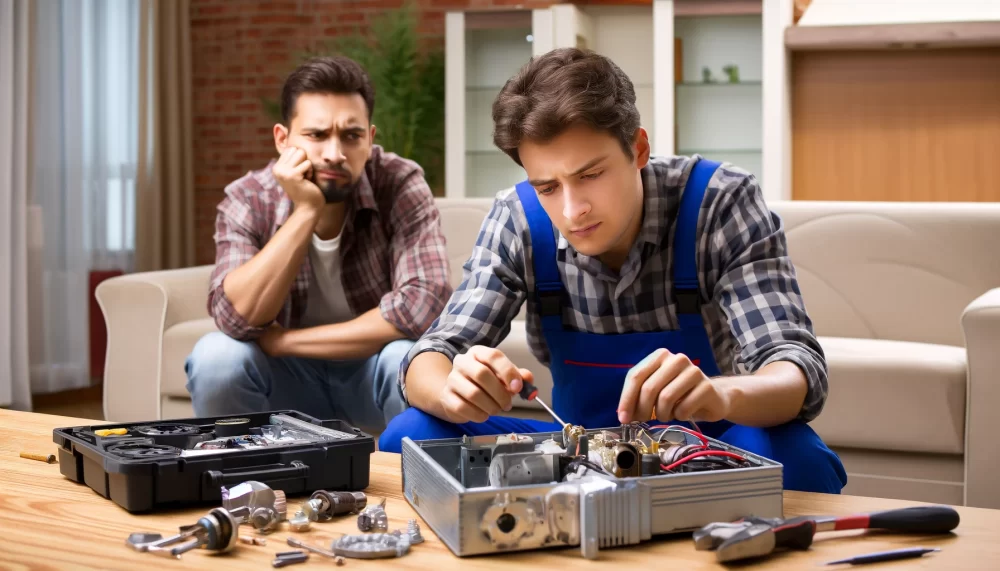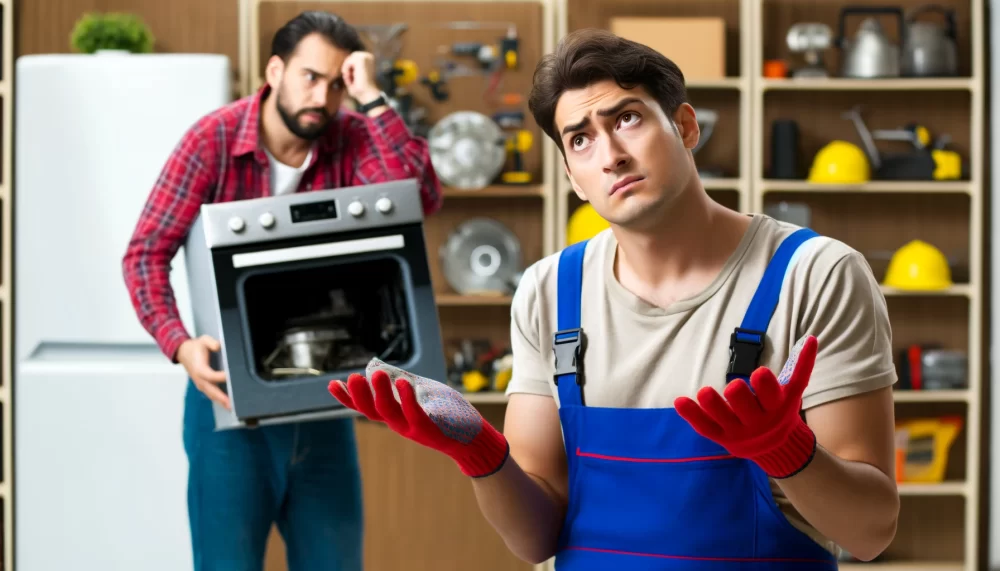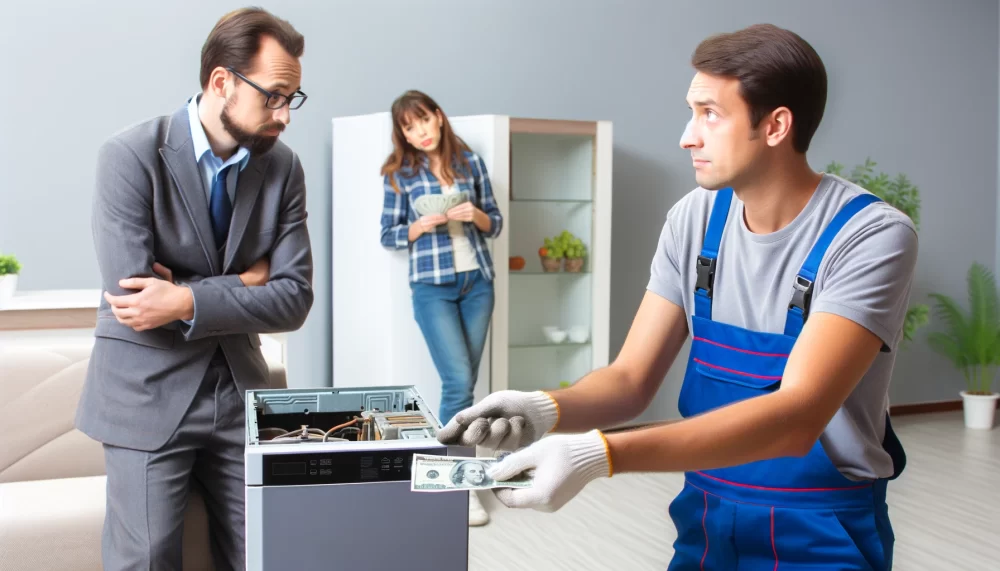When it comes to home repairs, saying the wrong thing to your repairman can lead to misunderstandings, delays, and even higher costs. This is why you must be careful with your communication. Avoid these common mistakes to ensure your repairs go smoothly.
1. “I Watched a Video on This”

While DIY videos can be helpful, mentioning them might make your repairman feel undervalued. They have professional training and experience that can’t be replaced by a quick online search. Trust their expertise and avoid comparing it to online tutorials. Additionally, suggesting you already know the problem from a video might lead to unnecessary complications. It’s best to describe the issue clearly and let the professional diagnose it.
2. “Can You Fix This Other Thing Real Quick?”

Adding extra tasks without prior notice can disrupt the repairman’s schedule. Each job is allocated a specific time slot, and unexpected tasks can cause delays for other clients. If you have multiple repair needs, it’s better to mention them when scheduling the appointment. This allows the repairman to come prepared with the right tools and allocate sufficient time for all tasks.
3. “How Much Longer Will This Take?”

Repair work can be unpredictable, and pressing the repairman for time can add unnecessary pressure. They aim to do the job right, which sometimes means it takes longer than initially estimated. Patience ensures quality work. If you’re concerned about the time, it’s better to ask about the process and what steps are being taken to resolve the issue.
4. “Is This Going to Be Expensive?”

While it’s natural to be concerned about costs, asking this question can put the repairman in an awkward position. They usually provide an estimate before starting, but unexpected issues can arise. Instead of questioning costs mid-repair, discuss your budget and get a detailed estimate beforehand. This way, you can avoid surprises and understand what you’re paying for.
5. “Why Is This Taking So Long?”

Repairs can sometimes take longer due to unforeseen complications. Instead of expressing frustration, ask for an update on the progress and any reasons for delays. Understanding the reasons behind the delay can provide peace of mind and show the repairman that you appreciate their efforts. Patience and understanding can lead to better quality work and a more positive experience.
6. “Can’t You Just Do a Quick Fix?”

Quick fixes might be tempting, but they often lead to bigger problems down the line. Repairmen aim to provide lasting solutions, not temporary patches. Trust their judgment on what needs to be done. Quality repairs save time and money in the long run, even if they take a bit longer initially.
7. “Can You Do It Cheaper?”

Asking for a discount or a cheaper solution can be disrespectful to the repairman’s skills and time. They provide a service that involves expertise and labor, and their pricing reflects that. If cost is a concern, discuss it upfront before the work begins. Negotiating mid-repair can lead to compromised quality and dissatisfaction for both parties.
8. “My Friend Said It Could Be Done This Way”

Comparing the repairman’s methods to advice from friends can undermine their professional judgment. Each repair situation is unique, and what worked for someone else might not be suitable for your problem. It’s better to trust the repairman’s expertise and ask questions if you’re curious about their approach. This fosters a collaborative relationship and ensures the repair is done correctly.
9. “Are You Sure This Will Fix the Problem?”

Questioning their expertise can undermine their confidence and create a tense working environment. Professionals assess and address issues based on their training and experience. Expressing trust in their skills encourages a positive relationship. If you have doubts, ask for explanations rather than questioning their competence directly.
10. “Can’t You Just Ignore That?”

Asking a repairman to overlook a problem is unethical and potentially dangerous. They are responsible for ensuring the safety and functionality of the repairs. It’s important to address all issues properly. Ignoring problems can lead to bigger and more costly repairs in the future, compromising the safety and integrity of your home.
Be Respectful and Cooperative

Maintaining a respectful and cooperative attitude towards your repairman ensures better service and smoother repairs. Clear communication and trust in their expertise can prevent misunderstandings and lead to more satisfactory results.
Read the full article here
















